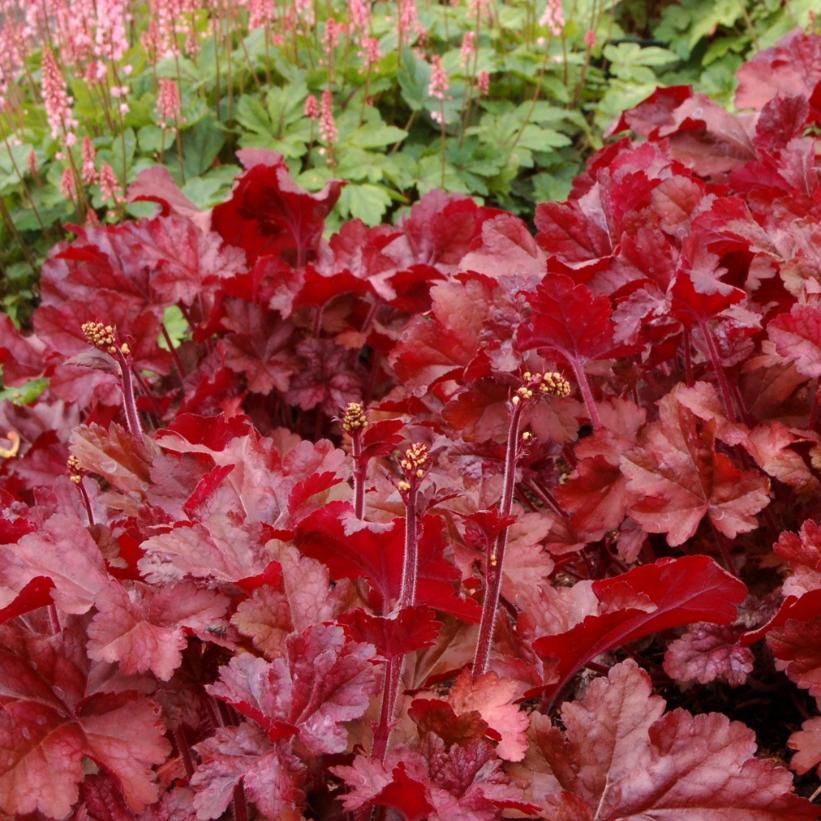Also called Alum Root
ZONE:
4
COLOUR:
White
HEIGHT:
30-35 cm
SPREAD:
45-55 cm
 Heuchera x 'Sparkling Burgundy' - Coral Bells - Photo courtesy of Terra Nova® Nurseries, Inc.
Heuchera x 'Sparkling Burgundy' - Coral Bells - Photo courtesy of Terra Nova® Nurseries, Inc.
Also called Alum Root
ZONE:
4
COLOUR:
White
HEIGHT:
30-35 cm
SPREAD:
45-55 cm
Grows best in an average to moist well-drained soil in partial sun. Newer cultivars are bred to tolerate more extreme growing conditions such as drought, heat, humidity, and exposure levels. Heuchera are very versatile and create an excellent colour contrast option in mass or as an individual accent perennial. Remove spent flowers from taller cultivars to keep a uniform appearance. When planting, it is important to note that the crown should remain slightly above the soil level to prevent stem rot. Root weevils are a common problem for coral bells.
Parentage: Heuchera micrantha x Heuchera americana.